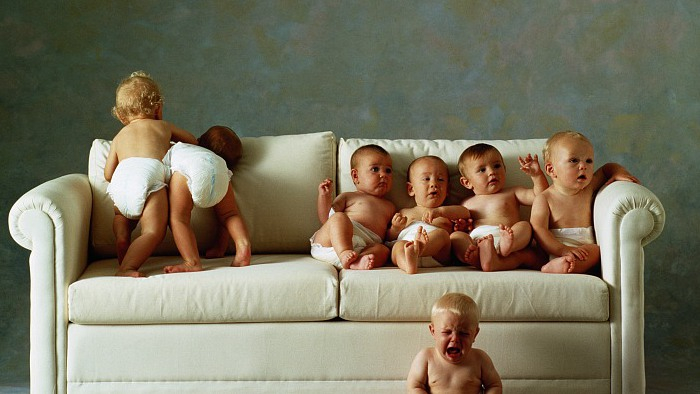

A new study revealed that children in their second year of life could discern the leaders among a group of people and expect them to intervene when one member of the group bullied others.
The study published on Monday in the Proceedings of the National Academy of Sciences showed that infants 17 months of age had a well-developed understanding of social hierarchies and power dynamics.
Infants typically stare longer at events that unfold in ways they don't expect, a well-established method that studies kids too young to fully express themselves verbally.
The researchers led by psychology professor Renee Baillargeon from University of Illinois used bear puppets to enact short performances in front of 120 infants.
Some of the children watched scenarios involving a protagonist bear that two other bears treated as a leader, and some saw a protagonist bear that appeared to have no authority over the other two bears.
First, the protagonist presented the other bears with two toys for them to share, but one bear quickly grabbed both toys, leaving none for the other bear.
Next, the protagonist either rectified this transgression by redistributing one of the toys from the wrongdoer to the victim, or the protagonist ignored the transgression, according to the study.
They found that infants stared longer when the leader ignored the wrongdoing than when the leader rectified it, suggesting that infants expected the leader to intervene and right the wrong and they were surprised when no such action was taken.
Those kids also stared longer at the wrongdoer than they looked at the victim bear and they were not surprised when a protagonist who was not a leader failed to redress the wrongdoing.
In another experiment, one of the bears announced that she did not want a toy and the other bear took both toys. The infants in this experiment stared longer when the leader intervened to make sure that each bear had one toy.
The findings provide new evidence that infants can reason about leaders.
"We knew from previous work that children this age have specific ideas about how followers will behave toward their leaders," said Baillargeon.
"Now we see that they also have complementary expectations about how leaders will behave toward their followers," said Baillargeon.

Copyright © 2018 CGTN. Beijing ICP prepared NO.16065310-3
Copyright © 2018 CGTN. Beijing ICP prepared NO.16065310-3